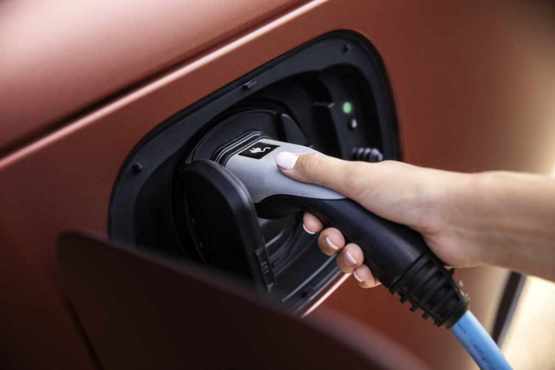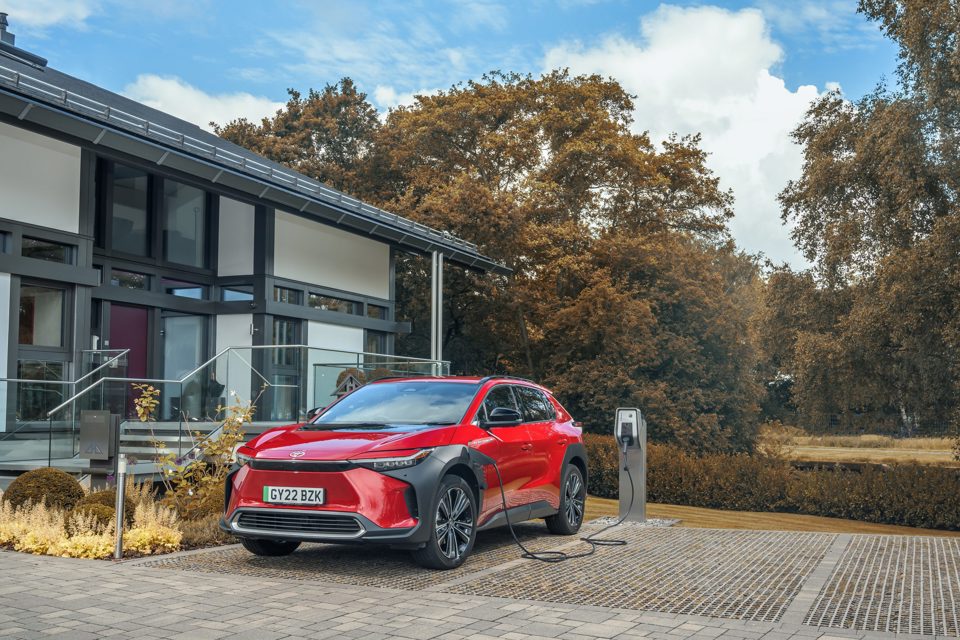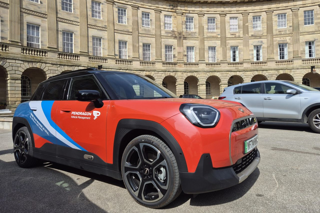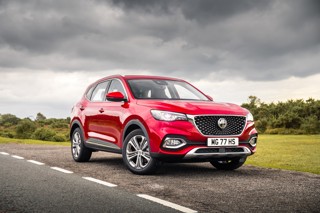Car retailers are calling for swift intervention, claiming that the fall in value of used electric cars could be putting the UK’s plans to phase out fossil-fuel models in peril.
Speaking at a September 6 House of Lords inquiry into barriers hindering the public’s uptake of passenger electric vehicles (EVs), a motor industry panel spelled out that there must be support for the used EV car market.
 Marc Palmer, brand director at Autotrader, explained that there had been some progress over recent years in the sale of new EVs which now make up about 16 to 17% of new registrations, but that that progress is ‘fragile’.
Marc Palmer, brand director at Autotrader, explained that there had been some progress over recent years in the sale of new EVs which now make up about 16 to 17% of new registrations, but that that progress is ‘fragile’.
“We have seen recently, probably for the last six to nine months a slowdown in demand for private registrations, which has been driven in part by macroeconomic conditions and pressure on household budgets.”
The adoption of EVs was being driven largely by the fleet sector according to Toby Poston, director of corporate affairs at the British Vehicle Rental & Leasing Association (BVRLA), although his members were, he said, becoming increasingly worried that a two-tier transition was putting wider EV adoption at risk.
He explained that the company-provided vehicle sector has an average uptake of around 50% which contrasted sharply with low uptake in the retail used car market, “It's more like 10% and if you look at used vehicle uptake in the rental sector, it's in the single figures.”
“That imbalance is a real worry going forward. That is not a healthy or potentially even a sustainable transition in the long term because the whole industry works in quite a joined up way,” he said, adding that the fleet sector had serious concerns over the risk of depreciation.
Dealerships were also concerned, according to Autotrader’s Palmer.
 “What we've seen in the last six to nine months is an oversupply of used cars coming into a market that currently isn't quite ready to soak up that supply so there's been a 23% drop year-on-year in retail prices of used cars because of the oversupply.”
“What we've seen in the last six to nine months is an oversupply of used cars coming into a market that currently isn't quite ready to soak up that supply so there's been a 23% drop year-on-year in retail prices of used cars because of the oversupply.”
“It engenders a loss of confidence in the trade where dealers think ‘hang on, I'm going to buy in an asset that might depreciate. How much am I going to be able to sell that car? How quickly am I going to be able to sell that used car?”
“Once you get that nervousness,” he added, “auction prices might begin to fall and that's really important because most new car registrations whether they be fleet or retail are registered through finance which often is based on future value.”
“If we start to see a fall in used car prices, and those future resale values are also falling, then the balance to fund those new cars becomes greater and therefore makes it more difficult for us to get to the 2030 target.”
“It's really important that we stimulate the used car demand to soak up that acceleration in supply or we might find some pressure on used. In order to move to 100% in new EV cars by 2030 and to make it sustainable and structurally sound, we need to make sure that the used supply demand dynamic is really robust.”
 Phill Jones, chief operating officer at Motors.co.uk, pointed out that there is no advantage to buying a used EV today.
Phill Jones, chief operating officer at Motors.co.uk, pointed out that there is no advantage to buying a used EV today.
“All the incentives have been on the new and as a result, people are more likely to buy the new car.”
When asked by committee members whether the industry executives thought that government intervention was needed in order to support the transition to electric vehicles, BVRLA’s Poston proposed two potential solutions: either reducing or even zero-rating VAT on used electric vehicles or adopting a French social leasing model where car drivers in certain demographics are offered discounts to help them to buy either a used or new electric vehicle.
The risk of not taking action to support the used EV car market was serious, he said. “It's been almost like watching a slow potential car crash happen. You know this this potential crunch point is slowly approaching.
"We’ve seen on average around a 20-25% fall in value of used electric vehicles. That is from a high position but if that carries on, with these fleets which have been investing billions in hundreds of thousands of electric cars, those vehicles are going to hit the used market in three to four years’ time.“
"If that slump continues, they've got to be a lot more cautious in how they set their new prices for lease rates.
"So, on the one hand, you could say cheap used cars for buyers is good although that benefit will only really be there for a while because eventually it will just create a big surge in the cost of new leased EVs - and that's the vast majority of EVs - so that's just going to make them unaffordable and damage the transition.”
He said his members were looking to used vehicle subscription models to offset this potential risk. “As EV cars are much more reliable and cheaper to maintain, leasing companies are seeing them as a potential fix to offer them for a second lease. So if you lease them for three years, instead of putting them in the used market, you can then lease them for a further three years.
"And again, that means you haven't got to put them into the risk of an auction where prices are just plummeting.”
“The key here is incentives," he said. "You've got the fleet market at the moment which is on steroids with the really powerful tax incentives and yet the retail new and used market has nothing and that's becoming increasingly obvious to buyers.”
Phill Jones at Motors.co.uk meanwhile summed up the dealership’s dilemma: “Car dealers are losing money when they take an EV because they have been falling in value for months. You've got this this kind of weird sort of paradox where you've got higher new car volume coming in, but tactically on a month to month basis, a car dealer is saying ‘do I hold a petrol car that has a relatively stable value or an electric vehicle which will take slightly longer to sell and declines in value?'.”
“You've got this kind of inertia," he said, "and each month, car dealers are having to make decisions about what's best to trade in that month.”





















Login to comment
Comments
No comments have been made yet.